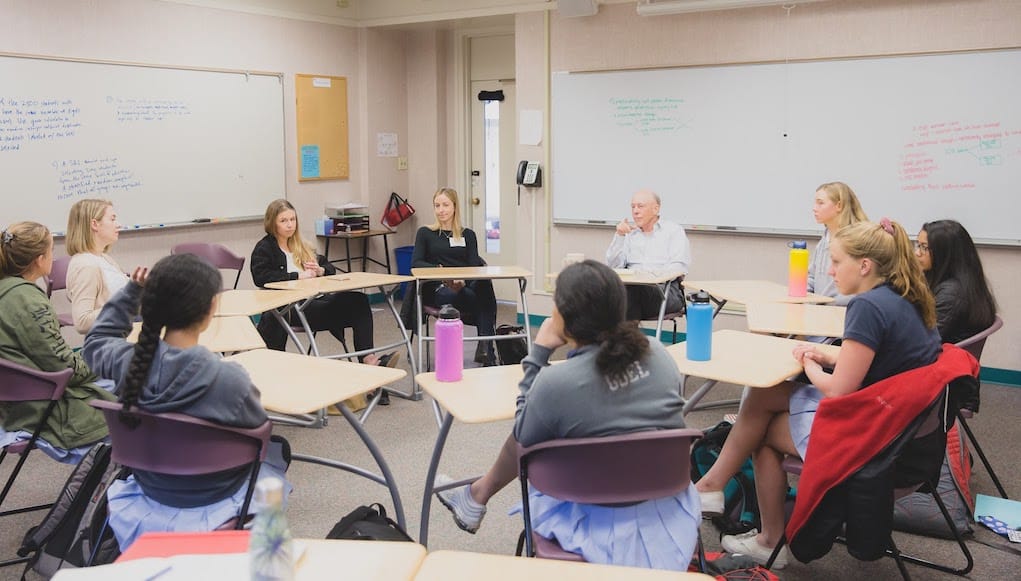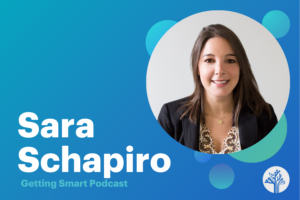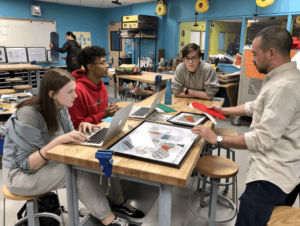Why Every High School Should Require an AI Course

By: Tom Vander Ark and Kyle Barriger
Shouldn’t young people know about the most important change force that will influence their lives and livelihoods?
We think so. That’s why every high school should offer a course on artificial intelligence (AI). Or, better yet, incorporate a set of competencies into graduation requirements that ensure that every young person understands the technology drivers and the implications for the economy and society.
The prevalence of AI has increased dramatically in the last few years. Most people are unaware that AI is a key technology behind personal assistants (Alexa, Siri, Google), autonomous vehicles, predictive analytics (Amazon and Netflix recommendations) and medical diagnostics just to name a few.
Young people may be digital natives but most of them are digitally naive. They know little to nothing about how technology works. And few of them appreciate that smart machines are reshaping the employment landscape and challenging social norms.
Young people need to be prepared to engage in dialogue about technology that is shaping their future. Understanding how AI works, the data used to train systems, and the benefits and pitfalls of AI in specific domains is essential knowledge to be a participant in these discussions. Additionally, students need to be able to synthesize knowledge about technology and form their own opinions regarding the appropriate uses of AI technologies. Too few students have been given this knowledge or challenged to form their own technology outlook.
We’d like to change that. We encourage schools to begin by offering a course that introduces young people to the technologies that will shape the world they will inherit. One example is the course that was recently taught at Castilleja School (feature image).
The Castilleja AI Course
Serving 434 young women in grades 6-12, Castilleja School in Palo Alto aims to develop confident thinkers and compassionate leaders with a sense of purpose to effect change in the world.
Last fall, the school offered a new seminar-style course on AI for upper division students focused on giving students a conceptual understanding of AI technology and its uses (featured image). The course has four goals:
- Understand what AI is at a conceptual level and how it works;
- Provide an overview of the key application areas where the technology is being employed;
- Learn how to evaluate the potential benefits and risks of this technology and strategies for mitigating risk and maximizing the benefits; and
- Write a technology forecast for an application of personal interest.
The first unit covering the underlying technology includes computing basics and key AI technologies like machine learning, neural networks and deep learning. Time is also spent looking at potential sources of bias with an emphasis on the data used in training AI systems. Throughout the course, students write papers that summarize their understanding of key concepts.
The second part of the course explores AI applications and takes an in-depth look at specific applications of interest to the students. Students consider the users of the technology and the benefits generated by applying AI to each application. They also look at potential sources of bias or ethical issues that may arise in this context. Students lead seminars in specific areas of interest.
The third unit is a capstone project–an in-depth look at a specific AI application. Students design the project and prepare a technology forecast looking at a 5-10 year time horizon that demonstrates how AI plays a central role in the application; the data set used to train the AI; the potential benefits and risks associated; the impact in social, economic, and political terms; and the trade-offs that will mitigate negative impacts and maximize benefits.
Student feedback from the first offering of the course was very positive. Student comments in the course survey included statements like “I feel I better understand what our future will look like” and “I learned so much about a field that is poised to transform our lifestyles,” indicating the value of this experience.

Castilleja’s course is one of the first offerings of its kind at the high school level. Other programs that are in progress include:
- A comprehensive middle school approach in the Montour School District (near Pittsburgh) that covers computer science basics, autonomous robotics, AI ethics, digital music across a number of courses. Montour recently hosted WAICY, an AI-infused robotics competition.
- Renton Prep (south of Seattle, picture above) introduces all students to computer science including AI through project-based inquiry. It’s all outlined in Principal Michelle Zimmerman’s new book, Teaching AI: Exploring New Frontiers for Learning published by the ISTE.
- With the support of the Japanese government, Amy Eguchi, Chair of Education at New Jersey’s Bloomfield College, created School Robot Challenge, part of the World Robot Summit initiative a competition.
- AI4All is sponsoring partnerships between high schools and leading computer science departments to extend AI exposure and training to urban youth in seven cities. They will also be launching an Open Learning platform that will provide an online AI curriculum.
- St Stephen’s School in Rome is making AI a schoolwide theme next year
Every high school student deserves a good look at artificial intelligence. Requiring a high school course that covers the basics of code that learns and its implications for employment and society is a good place to start.
For more, see:
- What K-12 Students Should Know About Artificial Intelligence
- An Inside Look – America’s First Public School AI Program
- Ask About AI: The Future of Work and Learning
Kyle Barriger, Jr. is a Mathematics and Statistics teacher at Castilleja School in Palo Alto, CA. You can find Kyle on LinkedIn here.

This post is a part of the Getting Smart Future of Work Campaign. The future of work will bring new challenges and cause us to shift how we think about jobs and employability — so what does this mean for teaching and learning? In our exploration of the #FutureOfWork, sponsored by eduInnovation and powered by Getting Smart, we dive into what’s happening, what’s coming and how schools might prepare. For more, follow #futureofwork and visit our Future of Work page.
Stay in-the-know with innovations in learning by signing up for the weekly Smart Update.







sudha
Best YouTube channel for learning machine learning and Artificial Intelligence
https://technoidhub.com/technology/best-youtube-channel-for-learning-machine-learning-and-artificial-intelligence/16247/
AI Training In Hyderabad
nice blog and the stuff you shared is valuable.i read your blog from top to bottom, i found very interesting. i also shared it.